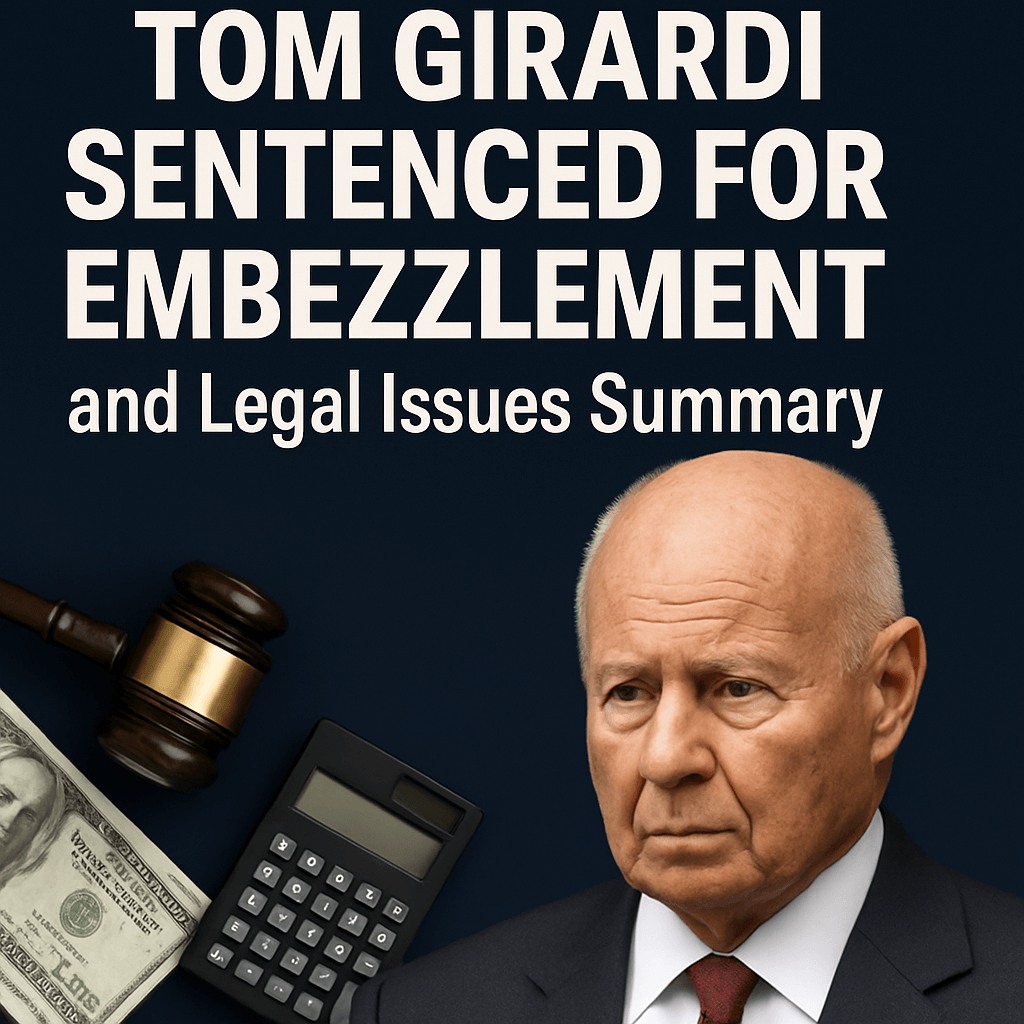Tom Girardi Sentenced for Embezzlement and Legal Issues Summary

A federal judge has sentenced Tom Girardi, the disbarred celebrity lawyer, to seven years and three months in prison for embezzling tens of millions of dollars from clients, including those suffering from severe physical injuries and families of fatal accident victims. This sentencing marks the culmination of a high-profile case that had widespread implications for legal ethics and client trust.
Details of the Sentencing
As stated by U.S. District Judge Josephine L. Staton, Girardi, 86, was also ordered to pay a $35,000 fine and $2.3 million in restitution to affected clients. In August, a jury found him guilty on four counts of wire fraud, crimes that term him susceptible to a potential maximum sentencing of up to 80 years. Judge Staton emphasized during the sentencing that the crimes committed created a serious breach of trust towards some of the most vulnerable members of society.
Background on Girardi’s Legal Career
Tom Girardi rose to prominence as a powerful attorney, best known for representing victims of significant disasters against large corporations. One notable case involved California’s Pacific Gas and Electric, resulting in a $333 million settlement, which was further popularized in the 2000 film Erin Brockovich featuring actress Julia Roberts. His reputation during the height of his career often portrayed him as a champion of the underserved, leading many to view his eventual downfall as profoundly tragic.
The Collapse of His Law Firm
However, this once-esteemed legal empire crumbled dramatically, leading to disbarment in 2022 due to client theft. The unraveling began as allegations of misappropriation surfaced, drastically changing public perception. Girardi’s inability to maintain financial integrity led to numerous lawsuits and grievances from former clients, pushing the legal community to re-examine regulations surrounding attorney conduct.
Health Issues and Competency
Girardi has been diagnosed with Alzheimer’s disease, attaining further complexities in his legal challenges. His deteriorating mental state led to a conservatorship being established under his brother’s guardianship. Despite these health concerns, Judge Staton ruled him mentally competent for the trial and sentencing, arguing that the findings were backed by thorough psychological evaluations.
Client Testimonies and Evidence Presented
Client testimony played a pivotal role in the prosecution’s case against Girardi. Victims, including a woman from Arizona who lost her husband in a boat accident and survivors of a 2010 gas pipeline explosion in San Bruno, recalled the emotional and financial turmoil wrought by Girardi’s deception. Prosecutors presented recorded voicemails wherein Girardi provided false justifications for the non-payment of awarded funds, claiming financial obligations and legal constraints. “Don’t be mad at me,” he frequently pleaded, attempting to deflect the anger and concern of his clients.
The Legal and Ethical Implications
This case has raised critical concerns about legal ethics, highlighting the need for more stringent regulatory mechanisms within the legal profession. Experts assert that there should be enhanced oversight on the handling of client funds. Failure in fiduciary duty can lead not just to individual ruin, as in Girardi’s case, but also to a broader loss of public confidence in the legal system.
Conclusion and Future Prospects
The sentencing of Tom Girardi serves as a cautionary tale for the legal profession, emphasizing the consequences faced by those who betray clients’ trust. As the legal landscape evolves, it is imperative for stakeholders to ensure that such breaches of ethical conduct are minimized through regulatory reforms. Moving forward, Girardi is expected to serve his sentence starting July 17, as he prepares for this next chapter in what has proven to be a tumultuous life.
Latest Developments
- Girardi is required to surrender to authorities by July 17, following a brief period of freedom post-conviction.
- Concerns about mental competency continue to loom as legal analysts debate the implications for future cases involving lawyers suffering from similar health conditions.
For more on legal ethics and client rights, stay tuned.